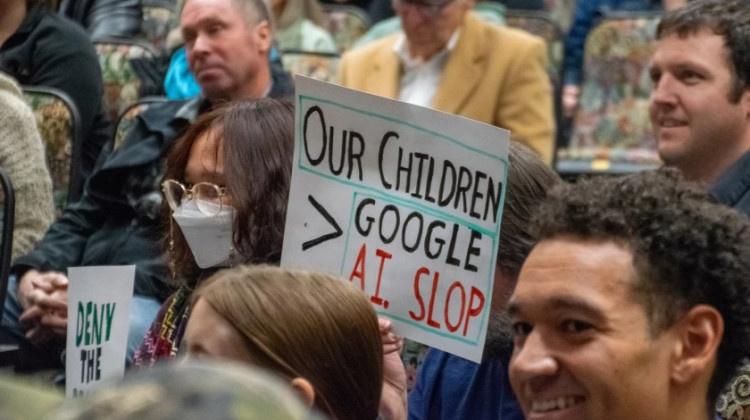
A bill designed to allow riverboat casinos move inland passed both chambers on Wednesday and is on its way to the governor.
AP photoINDIANAPOLIS – A bill designed to allow riverboat casinos move inland boost the industry’s ability to compete with gambling operations in Ohio and Illinois passed both chambers on Wednesday and is on its way to the governor.
But there is no guarantee that Gov. Mike Pence will sign the legislation. He’s said throughout the session that he will not support an “expansion of gaming,” which Pence has told lawmakers would include replacing electronic table games with live dealers at the state’s horse track-based casinos.
House Bill 1540 tries to skirt that issue – authorizing live dealers in 2021, just after Pence would leave office if he won a second term.
Originally, the bill would have authorized liver dealers immediately.
Sen. Ron Alting, R-Lafayette, commended the racinos for working through the process even though they didn’t get exactly what they wanted.
“They could have took a bad attitude towards it, but they didn’t,” Alting said. “They supported this bill.”
Senate Minority Leader Tim Lanane, D-Anderson, said he is disappointed that the live dealer language was changed because it would have created jobs. And Lanane said he does not view the live dealers as an expansion of gaming.
“It’s hundreds of jobs that we’re just giving up for the communities near Anderson and Shelbyville,” Lanane said. “The best I can figure out, the only reason we’re not doing that is because of the threat of a veto from the governor.”
Lanane said he requested the delay be changed from five years to three, but was told the governor would not sign the bill with that language.
“The fact of the matter is that this was the opportunity for us to actually create some jobs and we’re not doing it because of the threat of the governor of the state of Indiana to veto this legislation,” Lanane said.
He supported the bill, however, saying that other Hoosiers will benefit from the legislation.
The bill also gives tax breaks to the casino in French Lick, which is among the state’s smallest and is farthest from a population center, and provides a tax break for the racinos as well.
It makes permanent a marketing tax credit that lets casinos more easily offer “free plays” to potential customers.
HB 1540 also sets up a system that lets the state begin negotiations with the Pokagon Band of Potawatomi Indians, who seeking to build a casino in Northern Indiana. Federal law restricts the state from taxing or banning native American casinos but allows state officials to negotiate some terms.
“I think it’s very important that us, the General Assembly, the policy makers, have a seat athlete table when the compact is negotiated and approved,” said Rep. Sean Eberhart, R-Shelbyville.
The bill’s passage was no sure thing, even though similar versions of the legislation had already passed the House and Senate.
Throughout the final day of the session, Rep. Tom Dermody, R-LaPorte, worked with other lawmakers to find a compromise that would gather enough votes to get the bill passed.
At 2 p.m., Dermody said they had not found that solution. But by 7 p.m., he produced a compromise to the House that passed 75-11.
It later passed the Senate 36-13.
The bill now awaits the governor’s action.
Alec Gray is a reporter for TheStatehouseFile.com, a news website powered by Franklin College journalism students.
 DONATE
DONATE







 Support WFYI. We can't do it without you.
Support WFYI. We can't do it without you.